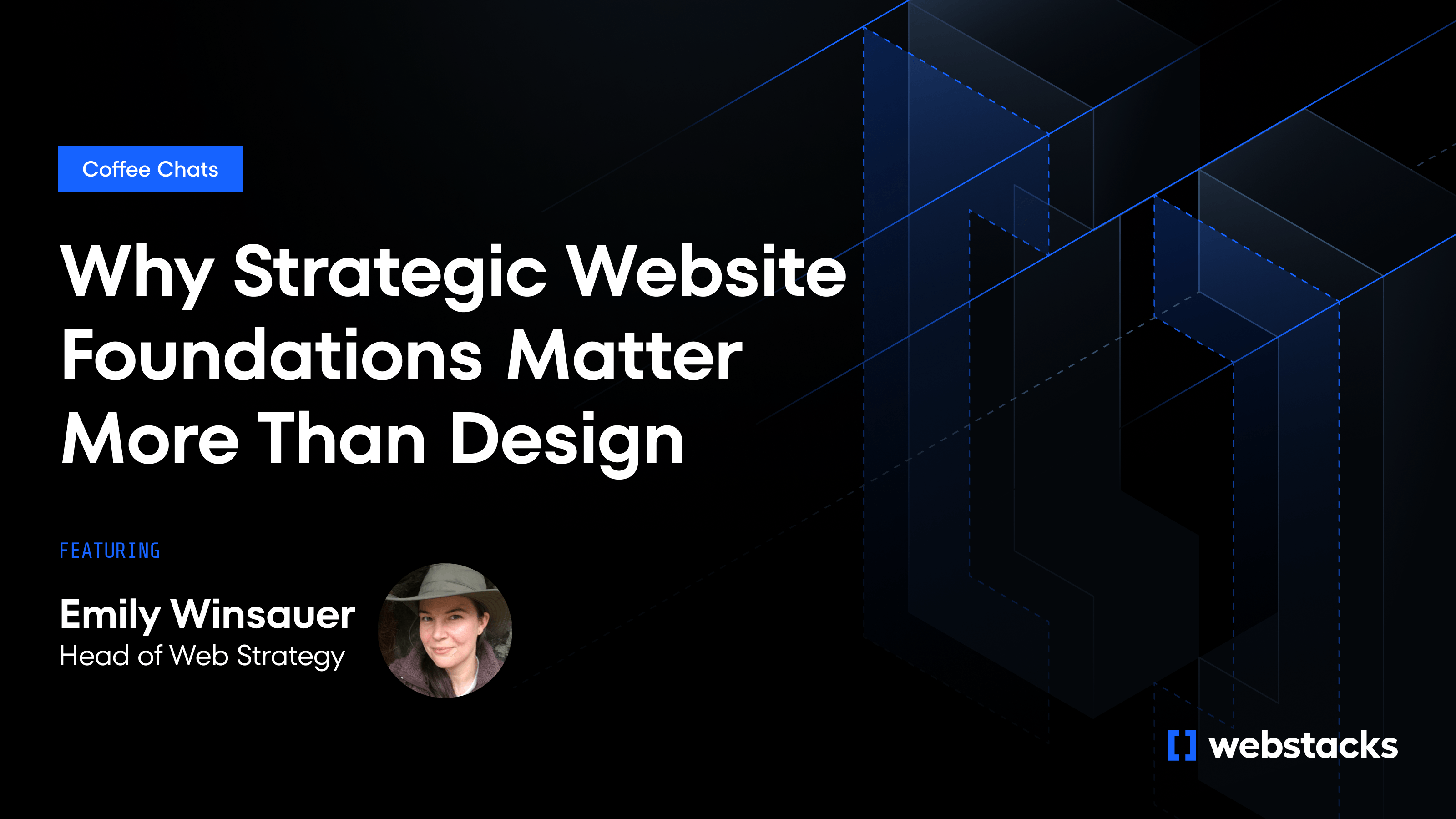Understanding the right keywords can make or break your online visibility. It's not just about ranking high; it's about attracting the right audience with an improved website UX.
Let's break down why keyword research matters for MedTech companies and how you can leverage it effectively.
How Do You Identify Target Keywords for MedTech SEO?
Identifying the right keywords for your MedTech SEO strategy involves several steps. Each step ensures you target the most relevant and effective keywords for your industry.
- Brainstorm relevant topics and phrases: Start by listing topics and phrases related to your products and services. Think about the problems your technology solves and the benefits it offers. Consider terms your potential customers might use when searching for solutions. This initial brainstorming session will provide a foundation for more detailed research.
- Use keyword research tools: Tools like Google Keyword Planner and SEMrush can help you find keywords related to your brainstormed topics. Using these tools, you can expand your list and prioritize keywords based on their potential impact. For professional assistance, consider Webstacks' keyword research services to streamline your process.
- Analyze competitor keywords: Look at the keywords your competitors are targeting. Tools like SEMrush allow you to see which keywords drive traffic to their sites. Analyzing competitor keywords helps you understand what’s working in your industry and identify gaps in your own strategy. Dive deeper into competitor analysis to refine your keyword strategy.
- Consider search intent and user journey stages: Identify keywords that match the intent at each stage. For example, someone in the awareness stage might search for "best MedTech solutions," while someone ready to buy might search for "buy medical devices online." Aligning keywords with search intent ensures you attract users at every stage of their journey.
- Evaluate keyword difficulty and search volume: Assess the difficulty of ranking for each keyword and its search volume. High-volume keywords might bring more traffic but are often more competitive. Low-volume keywords might be easier to rank for but bring less traffic. Balance your strategy by targeting a mix of high and low-difficulty keywords.
By following these steps, you can build a robust keyword strategy that improves your MedTech SEO and drives relevant traffic to your site.

What Are the 5 Best Practices for MedTech Keyword Research?
You can follow some basic practices for MedTech keyword research. Additionally, consider leveraging a comprehensive marketing tech stack to enhance your content optimization efforts. Here is a breakdown of 5 main steps:
1. Prioritize Relevance Over Search Volume
Focus on keywords that align closely with your products and services. High search volume keywords might attract more traffic, but if they aren't relevant, they won't convert effectively. For instance, if you specialize in surgical robotics, targeting "surgical robotics for hospitals" will yield better results than a broader term like "medical technology." Achieve content at scale with efficient workflows to support scalable keyword strategies.
2. Target Keywords Throughout the Marketing Funnel
Identify keywords that match different stages of the buyer's journey. For the awareness stage, use broad terms like "innovative MedTech solutions." In the consideration stage, focus on more specific phrases like "benefits of robotic surgery." For the decision stage, target keywords such as "purchase surgical robots." This approach ensures you capture potential customers at every step.
3. Localize Keyword Strategy for Global Markets
Adapt your keyword strategy to different regions and languages. Use geo-targeted keywords to attract local traffic, such as "medical devices in Germany" or "biotech companies in Japan." Consider cultural nuances and language differences to ensure your keywords resonate with local audiences. This localization helps you connect with a broader, more diverse customer base.
4. Align Keyword Strategy with Overall Marketing Goals
Ensure your keyword research supports your broader marketing objectives. If your goal is to increase brand awareness, focus on high-visibility keywords. For lead generation, target long-tail keywords that indicate purchase intent and regularly analyze website metrics to track performance. Aligning your keyword strategy with your marketing goals ensures a cohesive approach that drives measurable results.
5. Collaborate with Subject Matter Experts
Work with experts in your field to identify the most relevant and effective keywords. These experts can provide insights into industry-specific terminology and emerging trends. Their knowledge helps you refine your keyword list and create content that resonates with your target audience. Collaboration with subject matter experts ensures your keyword strategy stays current and impactful.

4 Types of Keywords to Target in MedTech SEO
Understanding the types of keywords to target can make a big difference in your strategy.
Short-tail vs. Long-tail Keywords
Short-tail keywords are broad and typically consist of one or two words, such as "medical devices" or "biotech." These keywords have high search volumes but are also highly competitive. They attract a large audience but may not always bring in highly targeted traffic.
Long-tail keywords are more specific and usually consist of three or more words, like "affordable medical imaging equipment" or "biotech startups in 2024." These keywords have lower search volumes but attract a more targeted audience. They are less competitive and often result in higher conversion rates because they match specific user intent.
Product or Service-Specific Keywords
Product or service-specific keywords focus on the particular offerings of your MedTech company. For example, if you manufacture surgical robots, keywords like "surgical robots for hospitals" or "robotic surgery systems" would be relevant.
These keywords help attract users who are specifically looking for the products or services you offer, increasing the likelihood of conversion. Enhancing your blog strategies can align well with targeting specific keywords related to MedTech products or services.
Branded vs. Non-Branded Keywords
Branded keywords include your company name or specific product names, such as "MedTech Corp surgical robots." These keywords attract users already familiar with your brand and are likely further along in the buying process.
Non-branded keywords are more generic and do not include brand names. Examples include "best surgical robots" or "top medical devices." These keywords attract a broader audience and are useful for building brand awareness and attracting new customers who may not yet know your brand.
Geo-targeted Keywords
Geo-targeted keywords include location-specific terms to attract local or regional traffic. Examples include "medical devices in San Diego" or "biotech companies near me." These keywords are especially useful for MedTech companies operating in specific regions or looking to attract local business. Geo-targeted keywords help you connect with potential customers in your area, making it easier to build relationships and increase local market share.
How Do You Optimize MedTech Website Content for Target Keywords?
Optimizing your MedTech website content for target keywords involves strategic placement and thoughtful integration. This ensures that search engines can easily identify and rank your content, making it more visible to potential customers.
Incorporate Keywords Naturally
Place your target keywords in the page titles, headings, and body content. This helps search engines understand the main topics of your pages. Ensure that the keywords fit naturally within the text to maintain readability and user engagement. Avoid keyword stuffing, which can negatively impact user experience and search rankings.
Use Variations and Related Phrases
In addition to your primary keywords, use variations and related phrases. This approach captures a broader range of search queries and helps your content appear in more search results. For example, if your primary keyword is "medical imaging equipment," include related terms like "diagnostic imaging devices" and "radiology equipment."
Optimize Meta Descriptions and Alt Tags
Meta descriptions and image alt tags play a significant role in SEO. Include your target keywords in these elements to improve search engine understanding and ranking. Meta descriptions should be concise and compelling, encouraging users to click through to your site. Image alt tags should accurately describe the image content while incorporating relevant keywords.
Create Keyword-Focused Blog Posts
Develop blog posts and landing pages centered around your target keywords. Building a content ecosystem helps in creating keyword-focused content. These pages should provide valuable information and address the needs of your audience. Use your keywords in the titles, subheadings, and throughout the content. This not only improves SEO but also enhances the relevance and usefulness of your site for visitors.
How Do You Measure the Success of Your MedTech Keyword Strategy?
To ensure your MedTech keyword strategy is effective, you need to measure its success through various metrics. This process helps you understand what’s working and where adjustments are needed.
Track Keyword Rankings and Organic Traffic
First, keep an eye on your keyword rankings. Use tools like Google Search Console or SEMrush to see how your target keywords are performing. Check if your website is moving up in the search engine results pages (SERPs) for these keywords. Higher rankings generally lead to more visibility and traffic.
Next, monitor your organic traffic. Tools like Google Analytics can show you how much traffic your site receives from organic search. Look for trends over time to see if your keyword strategy is driving more visitors to your site. Increased organic traffic indicates that your keywords are effectively attracting users.
Monitor Click-Through Rates and Bounce Rates
Click-through rates (CTR) measure how often users click on your site’s link in the search results. A higher CTR means your meta descriptions and titles are compelling and relevant to the search query. Use Google Search Console to track your CTR for different keywords.
Bounce rates show the percentage of visitors who leave your site after viewing only one page. A high bounce rate may indicate that your content isn’t meeting user expectations. Analyze your bounce rates to ensure visitors find what they’re looking for and stay engaged with your site.
Analyze Leads and Conversions from Organic Search
Track the number of leads and conversions generated from organic search traffic. Use tools like Google Analytics to set up conversion tracking and see which keywords are driving the most valuable actions on your site, such as form submissions, downloads, or purchases. This data helps you understand which keywords are not only bringing traffic but also converting visitors into customers.
Continuously Refine and Update Keyword Strategy
Keyword performance can change over time, so regularly review and update your keyword strategy. Look at the data you’ve collected on rankings, traffic, CTR, bounce rates, leads, and conversions. Identify patterns and trends to see what’s working and what needs improvement.
Adjust your strategy by adding new keywords, optimizing existing content, or creating new content to target high-performing keywords to help improve your website's ROI. Continuously refining your approach ensures that your MedTech keyword strategy remains effective and aligned with your business goals.
Is Investing in MedTech Keyword Research Worth It?
Yes, absolutely. Investing in MedTech keyword research directly impacts your online visibility, attracts the right audience, and drives growth. Understanding the specific terms your potential customers use helps you create targeted content that meets their needs. This investment ensures your website ranks higher in search results, leading to more traffic and conversions.
See the Webstacks difference: schedule a brief discovery call today. Discover how we can help you build a scalable, beautiful, and cutting-edge website that drives growth. Visit Webstacks to get started.





